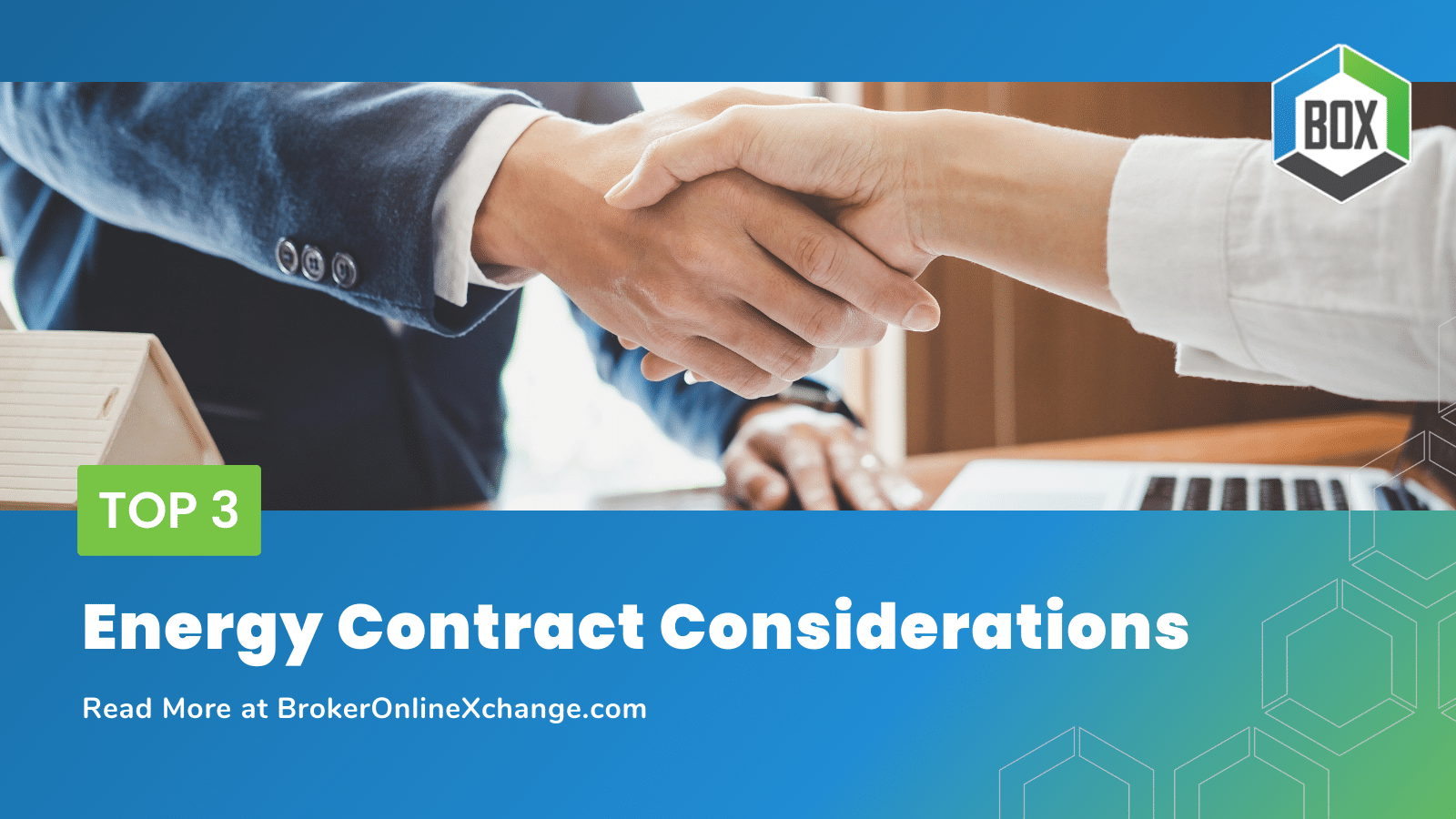Top 3 Energy Contract Considerations
The details matter when you are putting together a contract for a new customer. You want to get them the best deal possible and they need to understand what they are signing up for.
After all, their energy contract should meet their current and future energy needs. But things can get confusing when you are comparing offers from multiples suppliers. Keep reading to learn about the Top 3 Energy Contract Considerations.
Things to Consider About Energy Contracts
Negotiating for the right energy contract can be a tricky process. Every contract contains certain clauses that are difficult for the average customer to understand.
That’s why it’s beneficial for customers to work with a knowledgeable energy broker. You act as your customer’s advocate and help them find the deal that’s right for them.
Here are three things you should consider about the average energy contract:
Pricing Structure and Products
Most energy contracts have either a fixed, indexed, or variable pricing structure. Fixed pricing structures provide a set rate on their natural gas bill.
Their monthly rate will stay the same regardless of what the market does. Fixed rate contracts are ideal for customers that need to stick to a certain monthly budget.
Indexed and variable pricing structures tie the price to market rates. This means the customer’s bill will fluctuate based on their consumption and the market rate.
If adequately timed, these plans can provide a certain amount of flexibility. But they aren’t good long-term solutions because of the high risk of market volatility.
Contractual Period
It’s important to pay attention to the contractual period. How does it fit into your customer’s long-term goals? If your customer has a lease that’s up in two years, they don’t need a three-year energy contract.
The customer also needs to know if the supplier requires notification if they choose not to renew their contract.
The start and end date of the contract could also factor into your customer’s decision. This may help them decide whether they want a short or long delivery period for pricing.
For instance, let’s say their current fixed rate plan is set to expire in July. The market tends to be more volatile during the summer months. In that case, it makes sense to lock in that rate for a longer time frame.
Terms and Conditions
In every contract, there are terms and conditions to watch out for. Here are a few things to keep in mind:
What is the customer’s bandwidth for adding or removing a meter to their contract? And when is a price change triggered?
- What happens to the contract if the customer moves?
- How can the customer end their contract early?
- Is there an early termination fee? If so, how is this fee calculated?
Conclusion
Successfully managing customer contracts is an essential part of being an energy broker. But managing these contracts on your own can eat up a huge chunk of your time. This is precisely why BOX created My Service Cloud.
The My Service Cloud is a tool for managing contracts. It allows you to cut down on your contract submission time by 50 percent. That way you can provide better service to your customers, close deals quicker, and scale your business.
Contact us to learn more about partnering with BOX to grow your energy business.
About Broker Online Exchange
Broker Online Exchange (BOX) is the largest and most flexible retail energy network in North America. We satisfy the needs of commercial customers, energy brokers, and affiliates by providing direct access to North America’s top suppliers, markets, personalized support and payment plans.
For commercial energy customers, BOX offers access to the largest and most experienced broker network in the country. We connect customers to professional, specialized energy brokers will help satisfy your energy needs with the industry’s best prices. With over 63,000 accounts served across every market and industry, we know how to help each customers’ specific industry and market combination like no one else.






